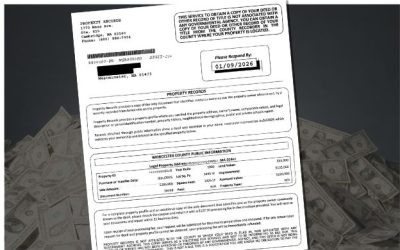
Jun 19, 2025 | Around The Home, Around The Hoome, Artificial intelligence, Buying Real Estate, Chapter 7 Bankruptcy, Consumer Tips, Credit Scoring, Fair Housing, Federal Reserve, FHFA, Financial Crisis, Financial Fraud, Financial Reports, Foreclosure, Happy Thanksgiving, Holidays, Home Building Tips, Home Buyer Tips, Home Buying Tips, Home Care, Home Care Tips, Home Closings, Home Decorating, Home Financing Tips, Home Maintenance, Home Mortgage, Home Mortgage Tips, Home Seller Tips, Home Selling Tips, Home Tips, Home Values, Homebuyer Tips, Homeowner Tips, Housing Analysis, Housing Market, Interesting Stuff, Investment Properties, Legislation, Market Outlook, Mortagage Tips, Mortgage, Mortgage Guidelines, Mortgage Lenders, Mortgage Rates, Mortgage Tips, mortgage-rates-whats-ahead-september-17-2012, News, Organization Tips, Personal Finance, Probate Law, Rankings, Real Estate, Real Estate Agent Information, Real Estate Definitions, Real Estate Tips, Real Estate Trends, Realtors, Selling Real Estate, Selling Your Home, Short Sales, Statistics, Success, Taxes, The Economy, Title Insurance
Whether you’re buying with cash, investing from abroad, transferring property to a family member, or just trying to close without a headache, you’ll want to know what can trigger federal scrutiny — and how to stay off the radar.
From flagged wire transfers and shell companies to gift-of-equity sales and land near military zones, this isn’t your average title-and-keys situation.
It’s real estate with a side of national security, tax enforcement, and financial crime prevention.
Is Big Brother Watching Your Home Sale?
What Buyers and Sellers Should Know About Federal Oversight
You’re Not Paranoid — They Might Actually Be Watching
What you didn’t know on how federal agencies keep tabs on select real estate transactions.
Your Closing Packet Could Be a Federal File
How Your Paper Trail Might Raise Red Flags — And What You Can Do About It
What the FBI, IRS, and Homeland Security
Could See in Your Closing Docs
We’re unpacking what agencies might spot inside your deal’s fine print.
Caught in the Crosshairs? What Triggers Federal Interest in Your Home Sale
The Top Red Flags That Could Invite a Closer Look from Washington
Cash, LLCs, or Land Near a Base? You Might Just Be a Target
The warning signs that put your deal on the government’s radar — and how to stay clear.
Follow the Money: How the IRS Tracks Financial Crimes Through Real Estate
From Unreported Income to Shell Game Schemes
— What IRS-CI Is Looking For
Your Closing Could Be an Audit Trigger — Here’s How the IRS Sees It
Explore the patterns, documents, and loopholes that turn ordinary deals into criminal cases.
Providing title, escrow, closing and settlement services to clients throughout Massachusetts and New Hampshire
“As a realtor, the Rocheford team went above and beyond to make sure my client was not only protected from a legal standpoint but also operated in a timely manner to execute the sale of my client’s dream home.
Thank you for the great experience for myself and my client! Looking forward to our next deal together!”
Realtor®
“I don’t usually use attorneys that often. But if an attorney is needed, I couldn’t recommend this law office enough. I always pride myself on responding quickly to emails and calls, but I was in awe of how fast paralegal Robert Heckman would respond to us. We sold our house a couple months ago and then did a two-part land swap with neighbors and my folks, and both transactions were seamless, including coming in to sign paperwork.
In short, if you need a law office that is responsive and attentive to detail, definitely consider them!”
Leominster, MA
“Excellent, conscientious and professional.
The communication throughout our Real Estate transaction was better than expected. We thought the fee to be very reasonable considering the work accomplished on our behalf. The law office handled the entire closing without us having to be in attendance….as we requested. I have had experience with very competent lawyers and law firms as the result of my previous profession. I would place this law office right up there among the best in their real estate field of expertise and surprisingly at very reasonable and affordable rates/fees.”
Buzzards Bay, MA

Jun 19, 2025 | Buying Real Estate, Consumer Tips, Federal Reserve, Financial Fraud, Financial Reports, Home Buyer Tips, News, Selling Real Estate, Selling Your Home
Your Closing Packet Could Be a Federal File — Here’s Why
When you’re finalizing a real estate transaction, your focus is likely on the price, terms, and closing date — not on what a federal agency might find in your paperwork. But if certain conditions apply, your stack of signed documents could become part of a federal investigation.
From title fraud to suspicious wire transfers, real estate closings contain exactly the kind of data federal agencies use to detect fraud, money laundering, or foreign interference. Let’s break down the key documents that could raise red flags — and how to keep your transaction clean.
Settlement Statements (CD/HUD-1): Show Me the Money
These documents detail the financial anatomy of your transaction — where the money is coming from and where it’s going.
Agencies like the IRS Criminal Investigation Division (IRS-CI) and Homeland Security Investigations (HSI) use these to detect:
- Undisclosed cash sources
- Overstated or fake expenses
- Unusual wire transfers or third-party contributions
IRS-CI investigates tax evasion and unreported income often spotted through property records.
Learn how IRS-CI tracks financial crimes through real estate
Power of Attorney or Signature Authority: Who’s Really Involved?
Documents granting someone else signing authority — especially in cash or trust purchases — can prompt FBI interest if:
- The grantor isn’t properly identified or verified
- A straw buyer is suspected (someone buying on behalf of an undisclosed party)
- The purchase is connected to shell companies with no clear owner
These red flags are commonly tied to fraud and money laundering investigations.
Read the FBI’s guidelines on common real estate fraud patterns
Proof of Funds or Bank Letters: Show Your Work
Cash buyers are often asked to show proof of funds, but not all banks or letters are equal in the eyes of compliance officers.
Federal agencies may scrutinize:
- Large transfers from offshore accounts
- Lack of financial institution transparency
- Inconsistencies between stated income and assets
Homeland Security Investigations (HSI) targets international financial crimes — especially involving real estate.
See how HSI investigates financial crimes tied to real estate
Entity-Based Transactions: LLCs, Trusts, and Shell Games
When a home is purchased through a legal entity — especially in cash — the title and closing documents must disclose the “beneficial owner.”
If they don’t, the transaction may:
- Violate FinCEN Geographic Targeting Orders
- Trigger FinCEN reporting requirements from title companies
- Be flagged for money laundering or sanctions evasion
Review FinCEN’s current rules for real estate ownership transparency
Tax Documents: When Closings and Capital Gains Collide
The IRS reviews real estate closings for unreported capital gains, under-the-table transactions, or misuse of tax exemptions.
Closings can trigger audits when:
- Sale proceeds are underreported
- A home is falsely claimed as a primary residence
- Form 1099-S isn’t issued when it should be
Sellers attempting to avoid tax obligations through title maneuvering or “gift-of-equity” deals should be cautious.
Understand when Form 1099-S is required in real estate transactions
What You Can Do (Besides Panic)
You don’t have to be laundering millions or working for a foreign government to attract unwanted attention. In most cases, red flags are raised by incomplete, inconsistent, or unexplained paperwork. Here’s how to stay ahead:
- Work with a closing attorney who understands both the legal and compliance landscape
- Avoid cutting corners on financial disclosures or title documentation
- Be honest and thorough when structuring transactions involving trusts, foreign buyers, or LLCs
Want to Keep the Feds Out of Your Closing?
Our team at The Law Office of David R. Rocheford, Jr., P.C. ensures every “i” is dotted and every “t” is lawyer-checked. We review your paperwork with a compliance lens — so you don’t accidentally invite scrutiny.
Providing title, escrow, closing and settlement services to clients throughout Massachusetts and New Hampshire
“I would highly recommend David as a closing attorney. I have known David and have been using his office for many years. David’s professionalism when dealing with me, my closing department and most especially my clients has been always exemplary.”
SENIOR LOAN OFFICER, SHAMROCK FINANCIAL SERVICES
“The Law Office of Attorney David R. Rocheford, Jr. is by far the most exceptional real estate law office that I have had the pleasure of working with. The professionalism is by far second to none.”
SENIOR LOAN OFFICER, SALEM FIVE MORTGAGE SERVICES
“Attorney David Rocheford has provided settlement and title services for me and Greenpark Mortgage several years. He has assisted all of my clients, including my family and friends with mortgage closings. Always providing excellent service. Reliable and trustworthy!”

Apr 16, 2025 | Consumer Tips, Financial Reports, Home Buyer Tips, Home Buying Tips, Home Financing Tips, Home Mortgage, Home Mortgage Tips, Home Seller Tips, Home Selling Tips
Understanding Transfer Taxes (Tax Stamps) in Massachusetts
When it comes to selling real estate in Massachusetts, one fee tends to catch sellers off guard: transfer taxes, also known as real estate tax stamps. At The Law Office of David R. Rocheford, Jr., P.C., we get a lot of questions about these costs — and we’re here to make sure you (and your clients) understand what to expect.
Who Pays the Transfer Tax in Massachusetts?
In nearly all cases, the seller is responsible for paying the transfer tax. However, during the negotiation process, the parties can agree to split the fee — or shift it entirely to the buyer. Like most things in real estate: it’s all negotiable.
The current transfer tax rate is $2.28 per $500 of the property’s sale price — that’s $4.56 per $1,000. This fee is paid to the state by purchasing tax stamps from the Registry of Deeds when the new deed is recorded.
Example: On a $500,000 home sale, the transfer tax would be $2,280.
You can review current rates and exemptions on the Massachusetts Department of Revenue website.
Not exactly — transfer taxes are not tax-deductible on your income tax return. However, they do get added to the cost basis of the property, which may reduce your capital gains tax when the property is sold in the future.
Some nonprofit organizations and federal agencies are exempt. Veterans Affairs (VA) and HUD transactions, for example, often qualify for exemption — but always confirm with the Registry and your closing attorney.
- The tax applies to any sale over $100.
- The tax is separate from municipal excise taxes or local fees (if applicable).
- The stamps are literally affixed to the deed — old school, but legally required.
Small details. Big difference.
Whether you’re buying or selling, understanding transfer taxes is a small detail that can make a big difference at the closing table. We help our clients plan ahead and avoid last-minute surprises every step of the way.
1234 Divi St. #1000, San Francisco, CA 94220
Copyright © 2026 Divi. All Rights Reserved.
Oct 30, 2023 | Financial Reports, Mortgage Rates, Real Estate
 As a mortgage officer, you understand the importance of staying proactive to build your business. In the mortgage industry, downtime can be an excellent opportunity to lay the groundwork for future success. With the right strategies, you can ensure that your pipeline remains strong, and your business continues to grow. In this blog post, we’ll explore five ideas to help mortgage officers make the most of their time and build their business effectively.
As a mortgage officer, you understand the importance of staying proactive to build your business. In the mortgage industry, downtime can be an excellent opportunity to lay the groundwork for future success. With the right strategies, you can ensure that your pipeline remains strong, and your business continues to grow. In this blog post, we’ll explore five ideas to help mortgage officers make the most of their time and build their business effectively.
1. Strengthen Your Online Presence
In today’s digital age, your online presence is vital to attracting and retaining clients. Use your downtime to enhance your website, create engaging social media profiles, and share valuable content related to mortgages and real estate. Regularly updating your website with useful information, blog posts, and client testimonials can help you establish credibility and trust with potential clients.
2. Expand Your Network
Building strong relationships is a cornerstone of success in the mortgage industry. Use your free time to expand your network by attending industry events, joining local business groups, and participating in online forums or social media groups related to real estate and mortgages. Networking can lead to valuable referrals and partnerships that will boost your business.
3. Refine Your Customer Relationship Management (CRM) System
An efficient CRM system can help you keep track of your clients and potential leads. Take the time to evaluate your current CRM system, and if needed, invest in a more robust and user-friendly one. Ensure that you have a system in place for staying in touch with past clients, sending out regular updates, and offering valuable resources.
4. Offer Educational Workshops and Webinars
Hosting educational workshops or webinars is an excellent way to establish yourself as an expert in the mortgage field. These events can cover topics such as the mortgage application process, understanding interest rates, or tips for first-time homebuyers. By providing valuable information, you can attract new clients and strengthen your relationships with existing ones.
While downtime in the mortgage industry can be frustrating, it’s also an excellent opportunity to work on building your business for the future. By strengthening your online presence, expanding your network, improving your CRM system, and offering educational workshops, you can ensure that your business remains strong and continues to grow. With dedication and the right strategies, you can maximize your productivity during slower periods and set the stage for long-term success in the mortgage industry.
Oct 2, 2023 | Financial Reports
Last week, consumers were treated to several indicators on inflation that not only paint a picture of the economy’s health but also give the Fed more information to work with as it continues to aim for a soft landing.
August Sees a Slight Upward Trend in Inflation
This week, the personal consumption expenditures price index, which excludes more volatile commodities like food and energy, increased 0.1 percent for the month. This is lower than the expected value of 0.2 percent, which indicates that the rising interest rates are starting to have an impact on the economy as the Fed continues to work to bring down inflation.
When compared to the previous 12 months, the price index was up 3.9 percent. This matched expectations and shows that inflation could finally be turning a corner. In addition, consumer spending rose 0.4 percent in August, which is down sharply from 0.9 percent in July. This is another indicator that higher interest rates are having an impact on consumers, who are finally pulling back on their spending.
As the month continues to progress, a lot of people will wait and see how the Fed’s decision to hold interest rates steady will impact the economy. Those looking for houses will probably be excited that interest rates were held steady, but it will be interesting to see how this decision impacts the fight against inflation.
Mortgage Rates Continue To Rise
This week, the 30-year fixed mortgage rate sits at around 7.59 percent on average, which remains one of the highest rates in decades. In August, the average rate was 7.18 percent, indicating that rates have gone up sharply. This is also up slightly from the previous week, where the average 30-year fixed rate was 7.51 percent.
 In addition, 15-year fixed mortgage rates have gone up as well, with the national average sitting at around 6.82 percent. This is up from last week, when the average 15-year fixed was 6.51 percent. This is also up slightly from August, where the rates hovered around 5.84 percent.
In addition, 15-year fixed mortgage rates have gone up as well, with the national average sitting at around 6.82 percent. This is up from last week, when the average 15-year fixed was 6.51 percent. This is also up slightly from August, where the rates hovered around 5.84 percent.
Because the Federal Reserve decided to hold interest rates study, many home buyers are hoping that mortgage rates will stabilize for a couple of months. It remains to be seen if that will happen.
Consumer Sentiment Might Be Stabilizing
The consumer sentiment report from the University of Michigan is stabilizing, with numbers for September coming in at around 68.1. While this is a slight dip from August’s average numbers, the numbers for September are starting to rise.
Consumers might be starting to relax a little bit because inflationary numbers are starting to come down. For consumer sentiment to rise further, mortgage rates might have to come down without contributing to a spike in inflation or home prices.
This dip implies that despite the decreasing inflation rates, there remains a cloud of uncertainty amongst consumers. This could be attributed to potential interest rate hikes and a subtle slowing down of the job market. The prevailing mood is still optimistic, but the trend is shifting.
Looking To Next Week
Next week, the unemployment data is going to be released, as initial jobless numbers are going to come in. This is a key indicator because rising interest rates generally lead to more layoffs, which could jeopardize the Fed’s goal of a soft landing.
Oct 2, 2023 | Financial Reports
Last week, consumers were treated to several indicators on inflation that not only paint a picture of the economy’s health but also give the Fed more information to work with as it continues to aim for a soft landing.
August Sees a Slight Upward Trend in Inflation
This week, the personal consumption expenditures price index, which excludes more volatile commodities like food and energy, increased 0.1 percent for the month. This is lower than the expected value of 0.2 percent, which indicates that the rising interest rates are starting to have an impact on the economy as the Fed continues to work to bring down inflation.
When compared to the previous 12 months, the price index was up 3.9 percent. This matched expectations and shows that inflation could finally be turning a corner. In addition, consumer spending rose 0.4 percent in August, which is down sharply from 0.9 percent in July. This is another indicator that higher interest rates are having an impact on consumers, who are finally pulling back on their spending.
As the month continues to progress, a lot of people will wait and see how the Fed’s decision to hold interest rates steady will impact the economy. Those looking for houses will probably be excited that interest rates were held steady, but it will be interesting to see how this decision impacts the fight against inflation.
Mortgage Rates Continue To Rise
This week, the 30-year fixed mortgage rate sits at around 7.59 percent on average, which remains one of the highest rates in decades. In August, the average rate was 7.18 percent, indicating that rates have gone up sharply. This is also up slightly from the previous week, where the average 30-year fixed rate was 7.51 percent.
 In addition, 15-year fixed mortgage rates have gone up as well, with the national average sitting at around 6.82 percent. This is up from last week, when the average 15-year fixed was 6.51 percent. This is also up slightly from August, where the rates hovered around 5.84 percent.
In addition, 15-year fixed mortgage rates have gone up as well, with the national average sitting at around 6.82 percent. This is up from last week, when the average 15-year fixed was 6.51 percent. This is also up slightly from August, where the rates hovered around 5.84 percent.
Because the Federal Reserve decided to hold interest rates study, many home buyers are hoping that mortgage rates will stabilize for a couple of months. It remains to be seen if that will happen.
Consumer Sentiment Might Be Stabilizing
The consumer sentiment report from the University of Michigan is stabilizing, with numbers for September coming in at around 68.1. While this is a slight dip from August’s average numbers, the numbers for September are starting to rise.
Consumers might be starting to relax a little bit because inflationary numbers are starting to come down. For consumer sentiment to rise further, mortgage rates might have to come down without contributing to a spike in inflation or home prices.
This dip implies that despite the decreasing inflation rates, there remains a cloud of uncertainty amongst consumers. This could be attributed to potential interest rate hikes and a subtle slowing down of the job market. The prevailing mood is still optimistic, but the trend is shifting.
Looking To Next Week
Next week, the unemployment data is going to be released, as initial jobless numbers are going to come in. This is a key indicator because rising interest rates generally lead to more layoffs, which could jeopardize the Fed’s goal of a soft landing.



















 As a mortgage officer, you understand the importance of staying proactive to build your business. In the mortgage industry, downtime can be an excellent opportunity to lay the groundwork for future success. With the right strategies, you can ensure that your pipeline remains strong, and your business continues to grow. In this blog post, we’ll explore five ideas to help mortgage officers make the most of their time and build their business effectively.
As a mortgage officer, you understand the importance of staying proactive to build your business. In the mortgage industry, downtime can be an excellent opportunity to lay the groundwork for future success. With the right strategies, you can ensure that your pipeline remains strong, and your business continues to grow. In this blog post, we’ll explore five ideas to help mortgage officers make the most of their time and build their business effectively. In addition, 15-year fixed mortgage rates have gone up as well, with the national average sitting at around 6.82 percent. This is up from last week, when the average 15-year fixed was 6.51 percent. This is also up slightly from August, where the rates hovered around 5.84 percent.
In addition, 15-year fixed mortgage rates have gone up as well, with the national average sitting at around 6.82 percent. This is up from last week, when the average 15-year fixed was 6.51 percent. This is also up slightly from August, where the rates hovered around 5.84 percent.